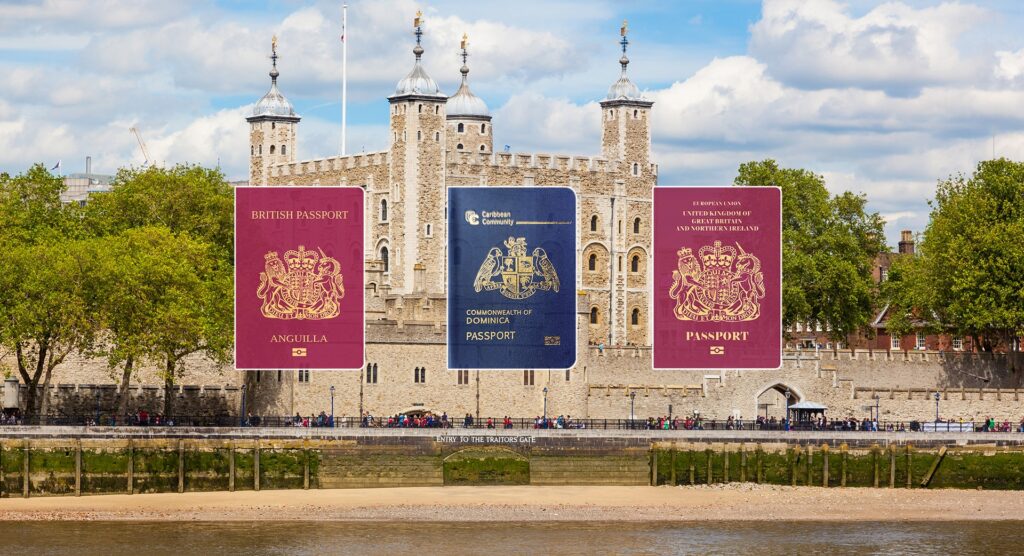This guide delves into the intricacies of flat tax systems and other attractive tax programs, comparing their impact on different income groups with the effects of progressive taxes. We’ll examine how taxes can influence wealth planning, including for individuals considering the non dom status as a strategy to optimize tax liabilities. By analyzing the flat tax’s application in various jurisdictions, such as the appealing flat tax Italy offers to attract foreign wealth, we aim to provide a comprehensive understanding of its benefits and limitations.
Flat taxes often spark heated debates in economic circles, and you’ve likely heard both sides of the argument. Proponents tout it as a fair and simplified system where everyone pays the same rate, promising equality and efficiency. But is it all it’s cracked up to be?
What is Flat Tax Program?
When navigating the complex world of taxation, the concept of a flat tax programs often surfaces as a streamlined alternative. But what exactly does this entail for you? Below, we unravel the specifics of flat taxes to provide clarity and insight into how such systems operate and their potential impact on your finances.
Definition of Flat Tax
At its core, a flat tax refers to a tax system with a constant rate applied to all taxpayers, regardless of their income level, unlike progressive tax systems, where tax rates escalate with higher income brackets, a flat tax charges the same percentage to everyone. This simplicity makes the flat tax appealing to many, advocating for a more straightforward and arguably fairer taxation method.
Countries and jurisdictions adopting a flat tax programs aim to simplify tax legislation and administration. By eliminating the brackets and tiers characteristic of progressive tax systems, these tax programs promise a more streamlined approach to taxation. It’s worth mentioning that the Italy flat tax model has garnered attention for attempting to attract wealthy foreigners by offering them a chance for a low fixed-rate tax, showcasing the diverse applications of flat tax principles in various settings.
How Do Flat Tax Programs Work?
Understanding how taxes work is crucial for comprehending the broader implications of these systems. Under a simplified tax regime, you would pay a set percentage of your income in taxes, regardless of how much you earn. For example, if the flat tax rate is 10%, and your income is $50,000, you would owe $5,000 in taxes. Similarly, if you earn $500,000, your tax bill would be $50,000. The simplicity and predictability of this system are among its most touted benefits.
Moreover, flat tax systems often allow for no deductions, meaning the taxable income isn’t reduced by various deductions or credits typical in progressive systems. However, some countries have implemented a modified version, permitting specific deductions before applying the flat tax rate, aiming to maintain fairness and provide relief for lower-income taxpayers.
How does it affect you? If you’re used to deducting mortgage interest, charitable donations, or other expenses from your taxable income, a shift to a flat tax system could significantly alter your tax obligations. It’s essential to consider these factors when evaluating the impact of potential tax reform on your personal finances.
History of Flat Tax in Europe and Worldwide

The journey of the flat tax system in Europe and around the globe is a fascinating testament to the evolving nature of fiscal policy. When exploring what is a flat tax, it’s crucial to understand that this system levies a single constant tax rate across all income brackets, making it simpler than progressive tax systems. This simplicity and fairness have led several countries to adopt, experiment with, and tweak flat tax systems to suit their economic landscapes.
In Europe, the simplified tax programs has seen a notable adoption streak. Eastern European countries, in particular, embraced the flat tax model in the early 2000s as a way to simplify their taxation systems, boost economic growth, and attract foreign investment. Estonia pioneered a simple corporate tax model in 1994, and others like Lithuania, Latvia, and Russia followed suit. These countries witnessed varying degrees of success, fueling debates on the efficiency and fairness of tax.
Italy joined the tax conversation with a unique approach to attracting wealthy foreigners by offering a favorable tax regime. Known as the “Italy flat tax”, this policy allows new residents to pay a fixed amount on foreign income, thereby avoiding the normal progressive tax rates. This initiative illustrates how flat tax models can be adapted to address specific economic goals, like boosting foreign investment and repatriating wealth.
Globally, the adoption of tax schemes catering to wealthy expats and investors spans beyond Europe. Several Asian and South American countries have flirted with simplified tax systems to simplify tax collection and make their jurisdictions more attractive to investors. However, the global landscape is mixed, with some countries retaining their low tax programs while others have reverted to progressive taxation due to concerns about income inequality and fiscal sustainability.
Political Climate for Flat Tax Programs

The political climate for implementing flat tax systems varies significantly across the globe. In some countries, the proposal of a low tax rate sparks debates on fairness and economic impact. For instance, when examining the Italy flat tax model, you’ll see a strategy to attract wealthy foreigners through a simplified tax regime. While innovative, this approach raises questions about its broader implications on income equality and public services funding.
At the core of every flat tax discussion is the question: What is a flat tax? A flat tax system charges all taxpayers the same percentage of their income, making tax regulations simpler and often more transparent. However, simplicity does not always equate to universal acceptance. Political ideologies play a vital role in shaping opinions on flat taxes. Conservative and libertarian groups often champion flat taxes for their efficiency and neutrality. In contrast, more progressive factions criticize them for potentially exacerbating income inequality by disproportionately benefiting higher-income earners.
Simplified Taxes in the United States
In the United States, the topic of simplifying the overly complex taxation system surfaces regularly during election cycles. Proponents argue that a simplified tax system would eliminate complexities in the current tax code and promote economic growth. Critics, however, caution against potential revenue losses and the undue burden on middle and lower-income families. This debate is reflective of the broader conversation happening internationally.
Economic conditions also influence the political viability of flat tax proposals. In periods of strong economic growth, countries may be more inclined to experiment with tax reforms like flat taxes to stimulate investment and consumption further. Conversely, during economic downturns, the priority often shifts towards securing fiscal stability and addressing social needs, which can make the flat tax a harder sell to the public and policymakers alike.
As such, the future of flat tax programs remains uncertain and heavily dependent on political will, economic circumstances, and public sentiment. Whether or not more countries will follow Italy’s lead, or if existing flat tax states will maintain their course, is still up for debate.
Advantages of Tax Programs for Wealthy Individuals

Simplify Tax Planning
When you’re navigating the complexities of managing significant wealth, the last thing you want is an overly complicated tax system. What is a flat tax, you might wonder, and how can it benefit you? A flat tax simplifies the entire tax planning process by applying a single tax rate to all levels of income. This means you don’t have to spend endless hours with financial advisors dissecting various tax brackets, deductions, or exemptions. For wealthy individuals, this simplicity can translate into substantial savings in time and money, making a flat tax an attractive option. Countries like Italy have recognized this appeal, introducing low tax programs to lure affluent foreigners looking for a more straightforward tax regime.
Reduce Income for HNWI and UHNWI
High Net Worth Individuals (HNWI) and Ultra High Net Worth Individuals (UHNWI) often face the harsh realities of progressive tax systems, where higher earnings attract higher tax rates. Introducing a low tax program can significantly reduce the tax burden on these individuals. By applying a single tax rate regardless of income, wealthy individuals can enjoy a more favorable tax treatment. This enhances their ability to maintain and grow their wealth and encourages further investment and economic contributions. For example, Italy’s flat tax model aims to attract wealthy individuals by offering a more predictable and less burdensome tax environment.
Potential Tax Treaty Benefits
One of the less discussed but highly significant advantages of living or investing in a country with a flat tax system, such as Italy, is the potential for tax treaty benefits. Tax treaties are agreements between two countries that typically aim to avoid double taxation on individuals and businesses operating in both jurisdictions. For wealthy individuals, a simplified tax system can enhance the benefits derived from these treaties. The straightforward nature of taxes could make it easier to qualify for treaty benefits, reducing overall tax liability and maximizing income preservation on a global scale.
Who Should Take Advantage of These Tax Programs

When exploring the landscape of tax regimes, a flat tax often emerges as a beacon for its simplicity and straightforwardness. But what is a flat tax? Simply put, it’s a tax system where everyone pays the same tax rate regardless of income level. This uniform approach can offer significant advantages to particular groups. Let’s delve into who stands to benefit most from adopting such a system.
Wealthy Families and Individuals
For wealthy families and individuals, a flat tax system like the Italy flat tax, can be particularly appealing. The simplicity of a single tax rate eliminates the complexities inherent in progressive tax systems, where the tax rate increases with income. This simplicity not only makes tax planning more straightforward but also has the potential to reduce overall tax liabilities for high earners. Countries with flat tax systems often set these rates lower than the top tiers of progressive tax systems, making them financially attractive for those with higher incomes.
Furthermore, flat tax systems typically reduce the number of deductions and loopholes available. While this may seem like a drawback, it actually levels the playing field and can significantly lower the effective tax rate for wealthier individuals accustomed to navigating more complex tax landscapes. Plus, for those considering relocation, the Italy flat tax offers an example of a country using such tax incentives to attract wealthy foreigners, offering them clear fiscal advantages without the burdensome paperwork.
Successful Entrepreneurs
Successful entrepreneurs, particularly those in the scaling phase of their business, find flat tax systems particularly beneficial. The predictability of tax obligations helps in financial planning and forecasting, crucial elements for growing businesses. You’ll know exactly what percentage of your income will go to taxes, enabling you to allocate resources more efficiently elsewhere in your business.
Moreover, the reduced administrative burden is a significant advantage. With fewer tax compliance hoops to jump through, you can dedicate more time and resources to strategic planning and operational efficiency. The simplicity of the flat tax system can mean less time spent on accounting and more on innovation and growth.
Full-Time Investors
Full-time investors stand to gain considerably from flat tax regimes, especially when it comes to capital gains taxation. Unlike progressive tax systems, where capital gains can be taxed at varying rates depending on the length of investment or the investor’s total income, flat tax systems often tax all income types at the same uniform rate. This predictability allows investors to make more informed decisions about when to buy or sell, free from the constraints of trying to navigate fluctuating tax rates.
Additionally, in countries with these straitforward systems, the policies around investment income can lead to significant tax savings, making these locations more attractive for international investors. The Italy flat tax, for example, is part of a broader effort to attract wealthy individuals and their investment capital by offering a more favorable tax environment. This can create a more welcoming climate for full-time investors looking to maximize their returns without exceedingly complex tax obligations.
Flat tax systems offer clarity, simplicity, and potentially significant financial advantages for those falling into specific categories. Whether you’re a wealthy individual looking for efficiency and potential tax savings, a successful entrepreneur seeking predictability for business planning, or a full-time investor in search of a more favorable tax environment, understanding and leveraging the benefits of flat tax programs can be instrumental in optimizing your financial landscape.
Best Low Tax Programs in Europe

As you delve deeper into the world of taxation, understanding the nuances of taxation systems across Europe can provide valuable insights. These programs have been implemented with varying degrees of success in several countries. Let’s explore some of the best flat tax programs the continent offers.
Switzerland
Switzerland stands out with its unique approach to taxation, often characterized by its decentralized system. This European nation offers a preferential lump-sum taxation regime for foreign residents who don’t engage in gainful activity within the country. This model allows individuals to be taxed based on their living expenses rather than their global income or wealth, which can act similarly to a flat tax for eligible residents. The cantonal autonomy in tax matters leads to varying rates and regulations, making it crucial to understand the specific rules of the canton you’re interested in.
Greece
In recent years, Greece has introduced a new tax incentive aiming to attract foreign investment and wealthy individuals seeking tax-efficient jurisdictions. This program allows qualifying individuals to benefit from a flat tax on their global income, provided they transfer their tax residency to Greece. The allure of this program lies not only in its simplicity but also in offering a competitive edge over other European countries by setting clear and attractive tax rates for high earners.
Italy
The Italy flat tax regime is particularly appealing for high net worth individuals looking for favorable tax treatment. Italy offers a substitute tax regime for new residents on their foreign income, with a flat annual payment. This program is designed to attract wealthy foreigners by simplifying tax payments and providing certainty regarding tax liabilities on foreign assets. The enticing aspect of the Italy flat tax is its aim to boost the country’s appeal as a residency destination for affluent expatriates and retirees.
Montenegro
Montenegro boasts one of the most straightforward and attractive tax programs in Europe. With a flat corporate income tax rate and a personal income tax rate set at a competitive level, it’s designed to attract businesses and individuals alike. The country’s tax system stands out for its simplicity, low rates, and the government’s efforts to create a favorable investment climate. Montenegro’s tax program is an exemplary model of how simplicity in tax structure can contribute to economic development and foreign investment attraction.
In exploring these flat tax and non dom programs, it’s clear that each country offers unique advantages tailored to different needs and goals. From Switzerland’s lump-sum taxation to Italy’s strategy to entice wealthy foreigners, these systems reflect the diverse approaches countries take to implement flat tax models that benefit their economies and residents.
Best Flat Tax Programs in the Caribbean

Exploring the Caribbean reveals not only its stunning beaches and vibrant cultures but also some of the most interesting flat tax regimes in the world. While the concept of a flat tax is often explored within the context of countries like Italy, it’s the Caribbean’s unique approach to taxation that offers intriguing prospects for both individuals and businesses looking to optimize their tax liabilities.
Anguilla
Anguilla sets a remarkable example of efficient tax management through its tax policy. Despite not having a general income tax, Anguilla introduced an Interim Stabilisation Levy in 2011, which is essentially a flat tax on salaries. This levy is divided between the employer and the employee, with each party contributing a flat rate of 3.8%. The simplicity of this system is its hallmark, ensuring that both individuals and companies can easily comprehend and fulfill their tax obligations without the complexities often associated with tax calculations. Additionally, this flat rate complements Anguilla’s mandatory social security contributions, streamlining the overall tax process for better financial planning and stability.
Antigua and Barbuda
Antigua and Barbuda, known for its crystal-clear waters and luxurious resorts, also offers a competitive tax environment. The country has embraced a more traditional flat tax system, which simplifies the taxation process for residents and investors alike. By applying a uniform tax rate, Antigua and Barbuda ensure a level playing field where tax liabilities are predictable and straightforward. This approach attracts a variety of investors looking for a stable and transparent tax regime that allows for easier budgeting and financial management. The consistency of a flat tax system here means that individuals and businesses can plan long-term investments with a clear understanding of their tax commitments.
Barbados
Barbados, another jewel in the Caribbean, takes a slightly different approach to taxation. While not strictly adhering to simple tax model, Barbados offers a variety of tax incentives and regimes that function similarly by providing flat-rate taxes in specific sectors. This strategy is particularly appealing to foreign investors and multinational corporations seeking favorable tax conditions. Barbados’s tax policy aims to encourage economic growth and investment in key industries, thereby creating a conducive environment for business development and wealth generation. By offering these incentives, Barbados positions itself as a competitive jurisdiction for international business and finance.
Exploring these Caribbean destinations reveals that each has tailored its tax policies to suit its economic goals and attract a specific demographic of investors and residents. From Anguilla’s simple levy system to Barbados’s strategic tax incentives, the Caribbean offers a range of flat tax programs designed to facilitate ease of doing business and promote financial growth. Understanding these programs is crucial for anyone looking to leverage the advantages of the region’s tax environments.
Conclusion

Exploring the world of taxes reveals a landscape rich with opportunities for financial optimization. Whether you’re a High Net Worth Individual seeking to simplify your tax obligations or an entrepreneur looking to tap into the benefits of a streamlined tax system, the allure of low taxes is undeniable. Countries around the globe, from the bustling markets of Eastern Europe to the serene shores of the Caribbean, have crafted tax regimes that cater to the needs of wealthy individuals and investors. By partnering with experts like Dan Merriam and Offshore Freedom, you unlock a pathway to maximizing your wealth and securing financial freedom. The journey towards understanding and leveraging flat tax advantages is complex, yet with the right guidance, it’s a journey that can profoundly impact your financial landscape.
Learn More
Offshore Freedom™ is a boutique coaching and consulting firm that helps investors and entrepreneurs live and invest internationally. We help our clients grow their businesses, pay less taxes, buy more real estate, and take advantage of global residency and citizenship by investment programs worldwide.
Schedule a 1 on 1 consultation with Dan Merriam, and let us help you design the life of your dreams and live the Offshore Freedom™ lifestyle. Ask questions and get answers about international real estate, tax planning, offshore banking, second residencies, citizenship by investment, lifestyle design and more.
This article is for informational purposes only; it should not be considered financial, tax planning, investment or legal advice. Consult a certified financial or investment professional in your jurisdiction of interest before making any major financial or investment decisions.
Writer in Tax Reduction, International Tax Planning, Travel, Citizenship by Investment, The Caribbean, Non Dom Tax, Italy Flat Tax, Greece Tax Program,, Switzerland, Anguilla Tax Residency, Antigua Tax Residency, Wealthy Expats, Second Residence, Real Estate Investing, Asset Management, Lifestyle Planning, Countries with the Lowest Taxes, Company Formation, Offshore Banking, Asset Protection, Technology, Entrepreneurship


















